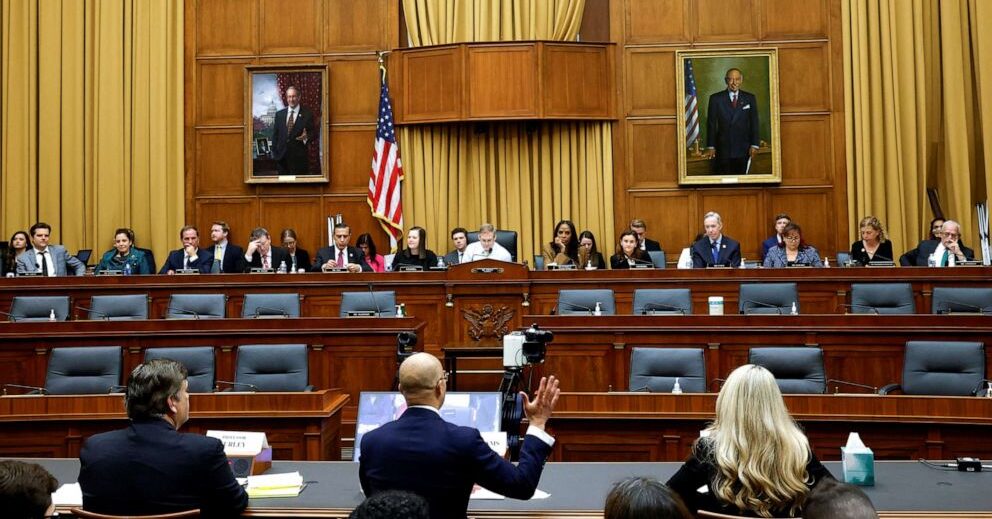
Recently, the U.S. House of Representives House Judiciary Committee and the Select Subcommittee on the Weaponization of the Federal Government released a new report on CISA. CISA is the Cybersecurity and Infrastructure Security Agency within the Department of Homeland Security. In this case, the Committees are investigating CISA for massive censorship of social media platforms and unconstitutionally restricting free speech.
CISA’s original purpose was to protect pipelines and other critical infrastructure from cyberattacks. However, the report details how CISA expanded the scope of its’ mission. Their new goals: to surveil and censor Americans’ speech on social media networks and platforms. In fact, the report outlines more than extensive collusion between CISA, Big Tech companies, and government-funded third parties to conduct censorship by proxy. Furthermore, it covers efforts to cover up CISA’s activities.
The Committees are investigating several ways the federal government coerced and colluded with private companies. Indeed, they discovered the efforts to censor constitutionally protected speech. First, they subpoened CISA for documents and communications. Next, they looked at public reporting. Those efforts exposed how the federal government has pressured and colluded with Big Tech and other intermediaries to censor certain viewpoints in ways that undermine First Amendment principles.
ISEG Research Fellow raised warnings about the potential harms of an American Ministry of Truth
On July 9, 2022, Dr. Abigail Devereaux, Research Fellow at the Institute for the Study of Economic Growth (ISEG), and Dr. Roger Koppl, professor of finance at Syracuse University, published an article in the Wall Street Journal on the dangers of the newly established taskforce. In brief, they warned that the task force already looked like a partisan instrument and is frighteningly reminiscent of the Ministry of Truth.
Here’s an excerpt from the article:
By creating the DGB, the U.S. government is creating a crisis monitor with the dial permanently set to “existential threat.” No one inside the board will have the incentive—or the courage—to dial it down.
The dangers of the DGB will be amplified if it becomes the tool of partisan political actors. And it already has. Executive director Nina Jankowicz, who once described Hunter Biden’s laptop as “a Trump campaign product,” has written that America’s “information landscape” includes “declining trust in the media, fed by the Trump administration’s relentless attacks on the fourth estate.” She has said: “Unless we mitigate our own political polarization, our own internal issues, we will continue to be an easy target for any malign actor—Russian or Iranian, foreign or domestic—to manipulate.”
Yes, you read that right. We must all fall in line because of the many grave threats—domestic as well as foreign—out there. Incorrect political opinions become a national-security threat. The DGB already looks frighteningly similar to the KGB.

Read the whole article at the Wall Street Journal.
Devereaux’s Work Cited in report released by U.S. House of Representives
On June 26, 2023, Devereaux and Koppl were cited in the report published by the U.S. House of Representatives Committee on the Judiciary and the Select Subcommittee on the Weaponization of the Federal Government. While the Committees’ investigation remains ongoing, they said in a press release that “information obtained to date has revealed that the CISA has facilitated the censorship of Americans directly and through third-party intermediaries. The report also details how:
- CISA considered the creation of an anti-misinformation “rapid response team” capable of physically deploying across the United States.
- CISA moved its censorship operation to a CISA-funded non-profit after CISA and the Biden Administration were sued in federal court, implicitly admitting that its censorship activities are unconstitutional.
- CISA wanted to use the same CISA-funded non-profit as its mouthpiece to “avoid the appearance of government propaganda.”
- Members of CISA’s advisory committee agonized that it was “only a matter of time before someone realizes we exist and starts asking about our work.”
- In response to mounting public scrutiny, CISA scrubbed its website of references to its domestic surveillance and censorship activities.”
Read the whole “THE WEAPONIZATION OF CISA: HOW A “CYBERSECURITY” AGENCY COLLUDED WITH BIG TECH AND “DISINFORMATION” PARTNERS TO CENSOR AMERICANS” report at the House.gov website.




